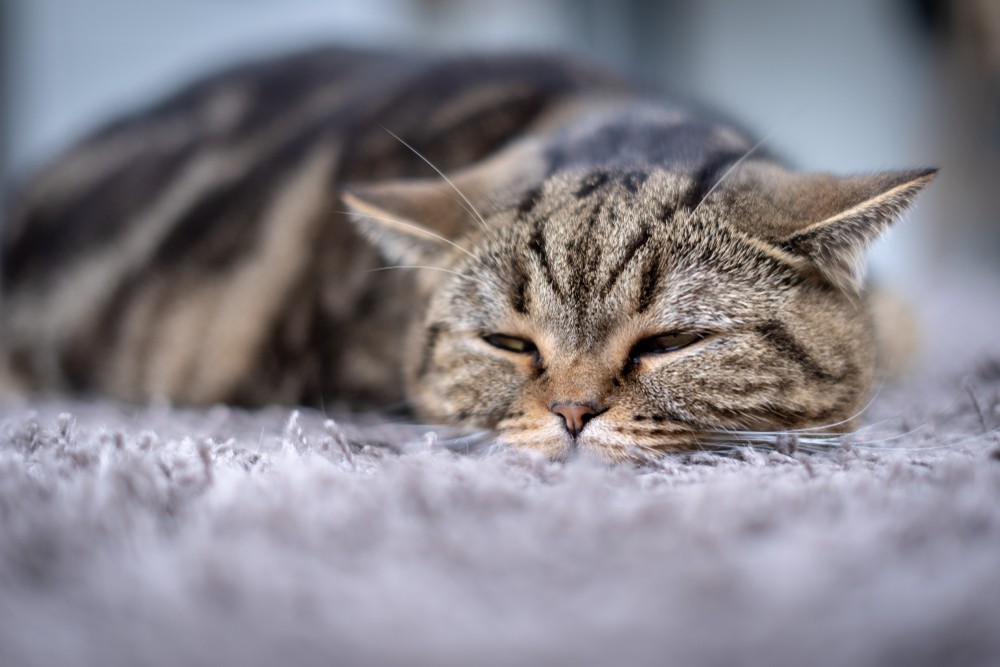As a cat owner, you’ve likely observed your feline friend enjoying their meals, engaging in meticulous grooming, and exhibiting their unique cat-like behaviors. Feeding time offers a special bonding opportunity, and providing your cat with nutritious food is a rewarding experience. But have you ever wondered, “How Long Does It Take For Cats To Digest Food?”
The digestion time in cats varies based on several factors. Generally, it takes between 26 to 35 hours for food to completely move through a cat’s digestive tract. However, the actual digestion and absorption process, primarily occurring in the stomach and small intestine, is much quicker. Let’s explore the fascinating world of feline digestion.
Understanding the Feline Digestive System
A cat’s digestive system is designed to efficiently process their diet. It encompasses several key functions:
- Ingestion: The process of taking food into the body.
- Mechanical Processing: The physical breakdown of food (limited chewing in cats).
- Digestion: The chemical breakdown of food into smaller molecules.
- Secretion: Release of enzymes and other substances to aid digestion.
- Absorption: Uptake of nutrients into the bloodstream.
- Elimination: Removal of waste products.
The digestive process involves several organs, including:
- Mouth (teeth and tongue)
- Esophagus
- Stomach
- Small Intestine
- Large Intestine
The liver, gallbladder, and pancreas are accessory organs that support digestion by producing enzymes and bile.
The Journey of Food Through a Cat’s Digestive Tract
The digestive process begins in the mouth, where food is mixed with saliva. Unlike humans, cats lack significant salivary amylase, an enzyme that starts carbohydrate digestion.
Once swallowed, the food travels down the esophagus to the stomach. The stomach is a muscular sac that churns and mixes food with gastric acids, further breaking it down. The time food spends in the stomach ranges from 1 to 3 hours, with liquids passing through more quickly than solids. An empty stomach triggers hunger, typically after 8-10 hours.
Next, the partially digested food enters the small intestine, the primary site of nutrient absorption. Bile from the gallbladder emulsifies fats, while enzymes from the pancreas further break down proteins, carbohydrates, and fats.
Finally, undigested material moves into the large intestine, or colon, where water is reabsorbed, and feces are formed. The feces are then stored until elimination.
Factors Influencing Digestion Time
Several factors can influence how long it takes for a cat to digest food:
- Diet Composition: High-protein diets, typical for obligate carnivores like cats, are generally digested more efficiently.
- Food Type: Wet food tends to be digested faster than dry kibble due to its higher moisture content.
- Meal Size: Larger meals take longer to digest.
- Individual Cat: Age, health status, and metabolic rate can affect digestion.
- Underlying Conditions: Digestive issues such as IBD or food sensitivities can disrupt normal digestion.
Maintaining a Healthy Digestive System for Your Cat
As obligate carnivores, cats thrive on a high-protein diet derived from animal sources. This is due to them not being able to produce certain amino acids within their bodies and have to source them from prey. A proper diet ensures optimal digestive function and overall health. Here are some tips for keeping your cat’s digestive system healthy:
- Choose High-Quality Food: Select a cat food that is rich in animal protein and low in carbohydrates.
- Consider Wet Food: Supplementing your cat’s diet with wet food can provide additional hydration and ease digestion.
- Avoid Sudden Diet Changes: Introduce new foods gradually to prevent digestive upset.
- Provide Fresh Water: Ensure your cat always has access to clean, fresh water to aid digestion and prevent constipation.
- Regular Veterinary Checkups: Schedule regular checkups with your veterinarian to monitor your cat’s health and address any digestive concerns.
Common Digestive Issues in Cats
 Sick cat lying on blanketImage By: one photo, Shutterstock
Sick cat lying on blanketImage By: one photo, Shutterstock
Several digestive issues can affect cats, including:
- Constipation: Infrequent or difficult bowel movements can be caused by dehydration, lack of fiber, or underlying medical conditions. A cat should not go longer than 24-36 hours without defecating.
- Intestinal Blockage: Obstructions in the digestive tract can occur when cats ingest foreign objects. This requires immediate veterinary attention. Symptoms include vomiting, dehydration, and refusal to eat.
- Inflammatory Bowel Disease (IBD): A chronic inflammatory condition affecting the digestive tract, leading to vomiting, diarrhea, and weight loss.
- Food Allergies: Adverse reactions to certain food ingredients, resulting in skin problems, vomiting, or diarrhea. A symptom of food allergies are skin lesions that cause the cat to itch constantly.
If you observe any signs of digestive distress in your cat, such as vomiting, diarrhea, constipation, or loss of appetite, consult your veterinarian for diagnosis and treatment.
Conclusion
Understanding how long it takes for cats to digest food and the factors that influence this process can help you provide optimal care for your feline companion. By feeding a high-quality, species-appropriate diet, ensuring adequate hydration, and promptly addressing any digestive issues, you can support your cat’s digestive health and overall well-being. Remember that consulting with your veterinarian is crucial for personalized advice and addressing any specific health concerns.
